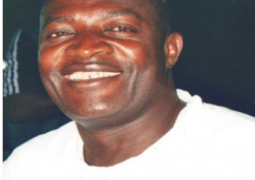
“The amendments will establish the law that only wealthy Gambians are entitled to and eligible to aspire for public offices in our country,” Mai Ahmed Fatty said in a statement sent to The Point newspaper.
Lawyer by profession, Mr Fatty said the amendments seek to place “unreasonable restrictions” on Gambians who desire to seek elective public offices but are poor.
The passage and enforcement of the Elections Act with the new amendments will see the introduction of feudalism into the national politics – the haves against the haves-not.
“This will create political dynasties of the rich and the powerful,” the GMC leader said.
The Elections Act, the principal law that governs the conduct of elections in The Gambia, has been amended, once again.The amendment bill is scheduled to be tabled at the National Assembly in Banjul by the attorney general and minister of justice, Mama Fatima Singhateh, today, 30 June, for approval or rejection.
It was initially supposed to be tabled on 23 June but was suddenly deferred, for its announcement sparked widespread discussions by concerned Gambians both in and out of the country, and both online and off.
The opposition parties were particularly swift in their condemnation of the proposed legal changes but the incumbent seems undeterred by its move to “regulate” the political landscape.
Among other things, the proposed amendment provides for D1 million registration fee for political party, increasing it from not more than D5,000.
It also obliges presidential candidates to “deposit” a non-refundable fee of D1 million for their candidature to be endorsed by the Independent Electoral Commission (IEC), in each presidential election.Previously, it was D10,000.
Parliamentary candidates have to deposit D100,000 instead of D5,000 for election; mayoral candidates have to also deposit D50,000 instead of D2,500; and councilors D10,000 instead of D1,500.It also obliges parties to be submitting their yearly audited accounts to the IEC.
The amendment also provided that all the executives of political parties have to be resident in The Gambia and have regional offices in all the administrative regions of the country.
Public offices for sale
The GMC leader said the amendment bill, when passed, will put elected public office up for sale at a price beyond the reach of the ordinary citizen.
He urged the government to shelve the bill for “it serves no public policy justification”.
Against the constitution
The lawyer cum politician pointed out that the very basis of the proposed amendments contradicts several provisions of the Constitution and the Elections Act itself.
Section 26 of the Constitution states that every citizen of The Gambia of full age and capacity shall have the right, without unreasonable restrictions, to take part in the conduct of public affairs; and to vote and stand for elections.
“This provision is not intended exclusively for the wealthy or the domestic resident, but of general application,” Mr Fatty said.“The residency requirement for all executive members of political parties, among others, offends a fundamental constitutional right to freedom of association, by exterminating its functional relevance.”
He noted that The Gambia is “the only country in Africa” with domestic residency requirements, designed “to politically target and exclude specific class of Gambians”, from fully participating in the political process.
“It victimises and alienates hardworking Gambians overseas, whose sweat and toil sustain hundreds of thousands of livelihoods at home,” he said.
Fatty pointed out that there are over a million Gambians in the diaspora.“Nobody has the power or authority to render them foreigners by implication overnight, neutralising their citizenship right to participate in public affairs, simply because they live outside The Gambia,” Mr Fatty argued.
If the amendment bill is passed by the National Assembly, the GMC leader mulled the possibility of his party taking a legal action to challenge the very basis of its existence.
Resolutely against death penalty
“Our views on the death penalty remain unchanged,” the GMC leader said.“We are resolutely against the death penalty.”
This is in reaction to the proposed amendment to the supreme law of The Gambia, the 1997 Constitution.
The Gambia government has proposed an amendment to Section 18 (sub-section 2) of the constitution to make provision for application of death penalty in circumstances other than where there is actual violence or administration of toxic substances resulting in death.
“This
proposal will fail,” Mr Fatty said. “We wonder why this administration is so
obsessed with the death penalty instead of preserving and protecting life.”
Read Other Articles In Article (Archive)
GCCI briefs the press ahead of ‘Marche Jula’
Oct 14, 2011, 1:57 PM



